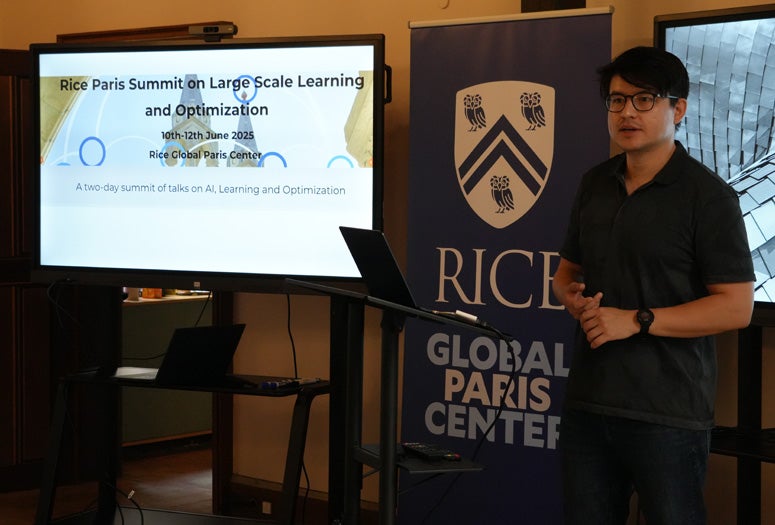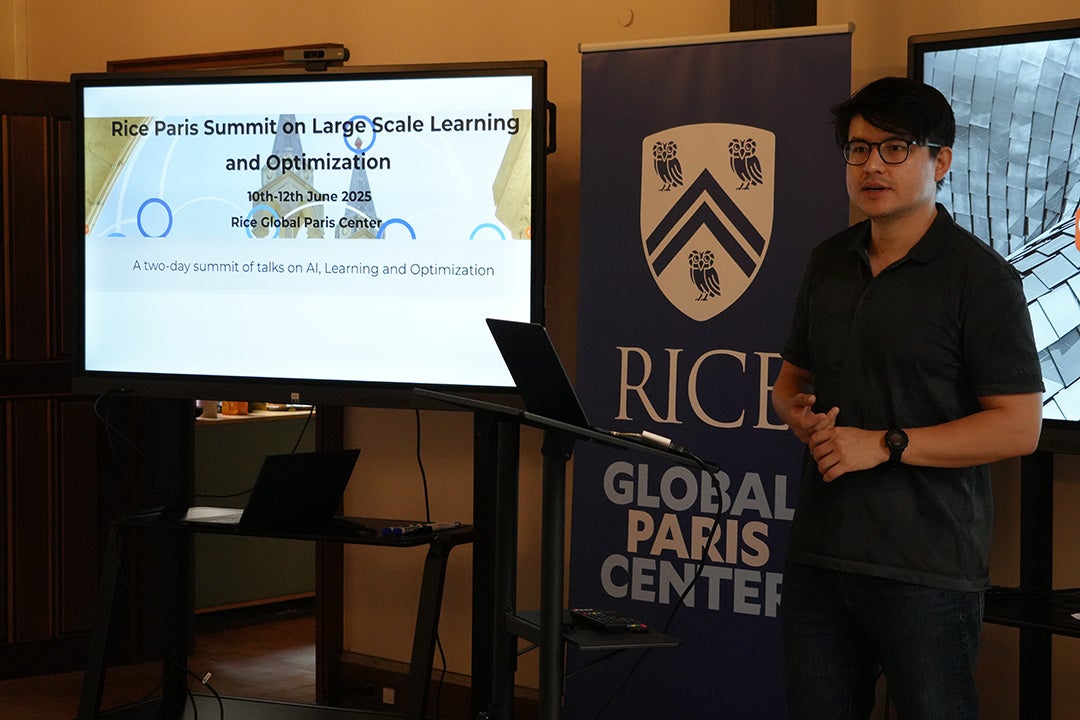
Some of the world’s top minds in machine learning, optimization and distributed systems gathered this summer in the heart of Paris. They were there not for the massive Viva Technology 2025 event but something smaller by design.
The Rice Paris Summit on Large Scale Learning and Optimization held at the Rice Global Paris Center was structured as a 2 1/2-day deep dive into feature learning, distributed optimization and the evolving role of large language models in artificial intelligence (AI). Its organizers, Rice University faculty members Anastasios Kyrillidis and César A. Uribe, aimed to move beyond the typical conference format to create a focused space for cross-disciplinary insight and spontaneous collaboration.
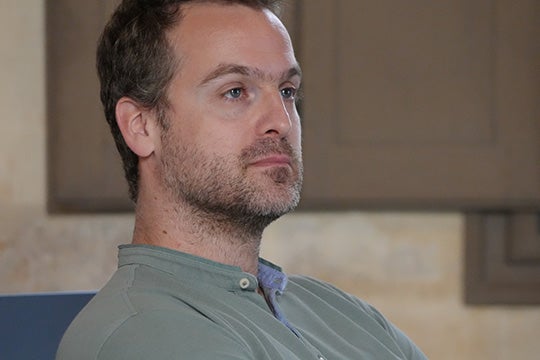
“When you have Victor Ruehle from Microsoft Research diving into low-level systems design in the same room as Adrien Taylor at Inria discussing abstract optimization theory, and everyone’s genuinely engaged rather than checking their phones, that’s when real breakthroughs happen,” said Kyrillidis, the Noah Harding Associate Professor of Computer Science. “We covered everything from diffusion models to MRI applications, and the intimate setting meant every talk turned into a rich discussion where people actually wanted to learn from each other.”
The summit was sponsored by Rice, Rice Global, the George R. Brown School of Engineering and Computing and the Ken Kennedy Institute. Kyrillidis and Uribe also expressed appreciation for Garry White and Camille Evans, whose work behind the scenes at the Paris Center helped make the summit possible. It drew leading researchers from both academia and industry, building on momentum from earlier events like the Texas Colloquium on Distributed Learning and the Applied Algorithms for Machine Learning workshop and inviting participants to tackle some of the most urgent technical and ethical questions in the field.
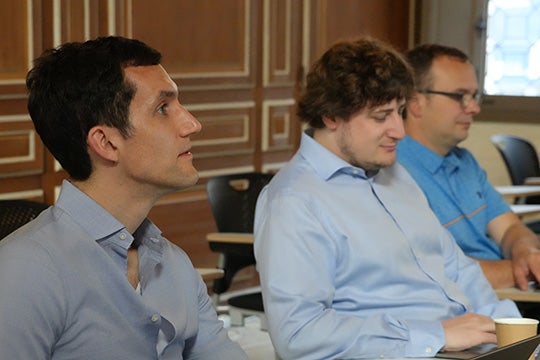
“More importantly, it was unique in the sense that we covered pretty much the whole AI development pipeline: models, math, algorithms, systems, products, applications and infrastructure,” said Uribe, the Louis Owen Assistant Professor of Electrical and Computer Engineering.
Beyond the lecture hall, the format allowed for informal conversations that often proved just as important as the formal sessions.
“Spontaneous discussions occurred after each of us had some time to process the talks,” Uribe said. “Having the speakers ready in a more informal setting made these interactions much easier.”
The result, organizers said, was not just academic exchange but real momentum toward future research partnerships.
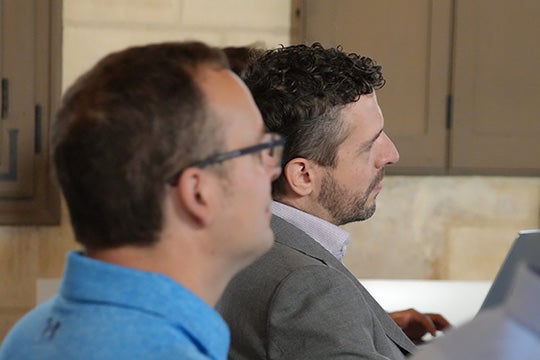
“The moment I realized we’d created something special was watching these world-class researchers become collaborators and friends. Knowing that École Polytechnique’s Luiz Chamon and Adrien (Taylor) might write a paper with us or that Gioele Zardini from MIT could help us explore AI in maritime research, that’s the real victory,” Kyrillidis said. “The human connections we built will outlast any technical insights.”
Both Kyrillidis and Uribe said the summit will likely become an annual tradition with even deeper partnerships with French institutions on the horizon.
“This wasn’t just another AI conference — it was a master class in how smaller, curated gatherings can spark genuine collaboration,” Kyrillidis said. “When speakers become discussants and attendees become friends, that’s when science really advances.”

